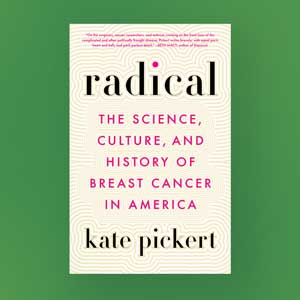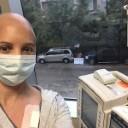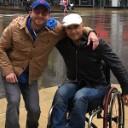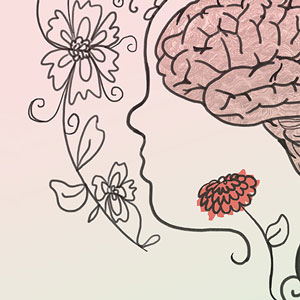Advocacy
-
In It for the Long Haul
Doctors and researchers met online to discuss how the coronavirus pandemic changed cancer care in its early months, as well as how they can improve care and advocate for patients going forward.
by Kate Yandell
-
Q&A
Taking the Long ViewIn her first book, journalist and breast cancer survivor Kate Pickert traces the winding road of cancer research and patient advocacy.
by Marci A. Landsmann
-
Survivor Profile
Sharing Her StrengthDiagnosed with two cancers prior to turning 40, Rebecca Esparza uses her voice to advocate for policy changes to help people affected by cancer.
by Lindsey Konkel
-
Parking Costs Take a Hidden Toll on Cancer Patients
People with cancer can pay significant costs for parking at cancer centers while receiving their treatment, a study finds.
by Marcus A. Banks
-
A Modern Family
My diagnosis with colorectal cancer at age 32 affected my fertility. As a result of my experiences, I help others who have been diagnosed with cancer understand their choices related to fertility preservation and their options for becoming a parent.
by Allison Rosen
-
Cancer Care Moves Forward Amid COVID-19
Following the arrival of the coronavirus in the U.S., people with cancer and their doctors are adjusting to new ways of doing things while continuing to seek and provide cancer care.
by Kate Yandell
-
Facing Cancer and a Pandemic at the Same Time
Cancer patients and their families share stories of fear, love and uncertainty as they find new ways to support each other.
by Jen Tota McGivney
-
Virtual Connection in a Time of Social Distance
Responding to the coronavirus, patient advocates and nonprofits expand existing outreach initiatives and launch new ones.
by Marci A. Landsmann
-
Survivor Profile
A Driving ForceMark Good uses every avenue to spread the news about prostate cancer.
by Lindsey Konkel
-
Advocacy in Action
Leaving a LegacyTwo mothers, each with a son who died of brain cancer, worked together to increase awareness and acceptance of tumor tissue donation.
by Esther Landhuis














